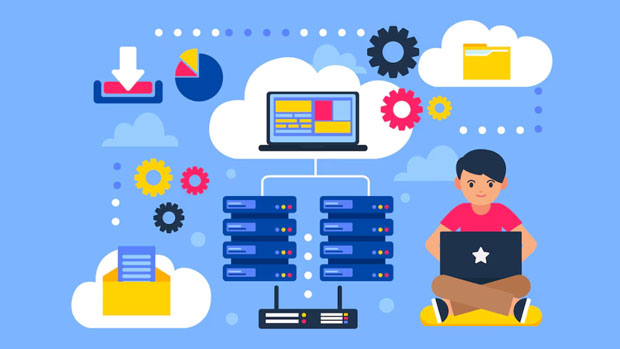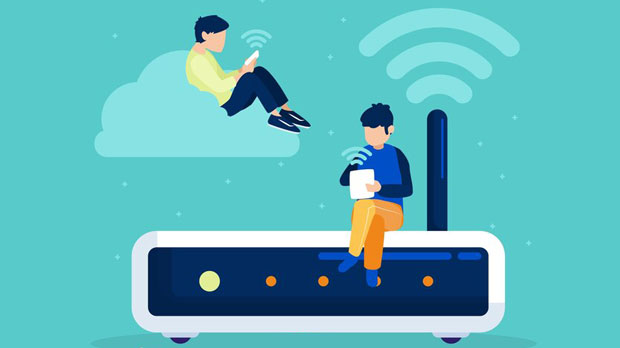A proxy ip, commonly referred to as a proxy server, acts as an intermediary between a user's device and the internet. It facilitates requests from users to websites and online services by masking the user's real IP address. In essence, the proxy server receives a request from the user, processes it, and forwards it to the relevant website. When the website responds, the proxy server sends the data back to the user, ensuring that the user’s IP address is not exposed. The working principle of proxy ips revolves around this process of routing traffic, which provides benefits such as improved privacy, security, and the ability to bypass geographical restrictions. Understanding Proxy IPs: The BasicsA proxy IP serves as a go-between in online communications. When a device makes a request to access a website or an online service, the request does not go directly to the target server. Instead, it is first directed to the proxy server, which processes the request before sending it on to the intended destination. The proxy server makes the request on behalf of the user, often masking the original IP address. This provides a layer of anonymity, which is a key benefit of using proxy IPs.Proxies function by forwarding traffic from a user's device to a destination server. This intermediary process allows for several advantages, such as preventing direct exposure of the user's IP address, enhancing privacy, and controlling internet usage. Proxy servers are essential tools in ensuring secure and anonymous browsing.The Working Mechanism of Proxy IPAt its core, the operation of a proxy IP relies on several technical steps:1. Request Handling: When a user sends a request to visit a website, the request is first received by the proxy server. Instead of the request going directly to the website, the proxy server processes the request.2. Request Forwarding: Once the proxy server processes the request, it forwards it to the appropriate website or server, effectively making it seem as though the request is coming from the proxy itself rather than the user's device.3. Response Routing: The website responds to the request, and the response is sent back to the proxy server. The proxy server then forwards the response to the user, making sure to keep the user’s original IP address hidden.This series of steps enables proxy IPs to maintain a level of anonymity, ensuring that the user’s identity is protected from the website they are interacting with.Different Types of Proxy IPsProxies come in different types, each serving distinct purposes. The following are the most common types of proxy IPs:1. residential proxies: These proxies are linked to real residential IP addresses, making them harder to detect and block. Residential proxies are typically used for tasks like web scraping, social media management, and accessing geo-restricted content. Their legitimate nature ensures that they blend in seamlessly with regular internet traffic.2. Data Center Proxies: These are not linked to real residential IPs but instead come from data centers. While faster and more cost-effective, they are easier to detect and block by websites. However, they are commonly used for activities such as bulk data scraping or SEO research.3. Public Proxies: Public proxies are freely available to anyone but are often unreliable and less secure. They offer low anonymity and can result in slow connection speeds due to the number of users accessing the same proxy.4. Private Proxies: Unlike public proxies, private proxies are exclusive to individual users. This ensures better performance, security, and anonymity, as there is less risk of congestion or misuse from others.5. Reverse Proxies: These proxies are used by servers to handle requests from multiple clients. A reverse proxy helps balance the load and improve security by acting as a barrier between users and the server.Each type of proxy serves different purposes, and the choice of proxy depends on the specific needs of the user, such as security, speed, or geographical considerations.Key Benefits of Using Proxy IPs1. Enhanced Privacy and Anonymity: By masking the user's IP address, proxy servers ensure that online activities remain private. This is crucial for protecting personal data and preventing surveillance.2. Access to Geo-Restricted Content: Many websites and services restrict content based on geographic location. Proxy IPs enable users to access this content by masking their real location, effectively bypassing geographical restrictions.3. Security Features: Proxy servers act as an additional layer of security. By filtering malicious content and blocking suspicious requests, they help protect users from cyber threats such as phishing and malware.4. Load Balancing: Proxies can help distribute internet traffic more evenly across servers, improving website performance and reducing the load on individual servers.5. Bypass Censorship: In regions where internet access is heavily censored, proxy servers can provide users with the ability to bypass government-imposed restrictions and access freely available content.Real-World Applications of Proxy IPsThe use of proxy IPs spans various industries and applications:1. Web Scraping: Proxy IPs are commonly used to gather data from websites in a manner that avoids being detected or blocked. Scrapers can use proxies to simulate different users accessing a website, thus evading detection by anti-bot mechanisms.2. SEO Research: Businesses often use proxies to perform SEO audits, track rankings, and analyze competitors. Proxy servers help gather data from search engines without the risk of IP bans.3. Ad Verification: Advertisers use proxies to verify that their ads are being displayed correctly and are not being manipulated. By using proxies, advertisers can check ad placements from various geographic locations.4. Social Media Management: Proxies are used to manage multiple social media accounts without triggering security alerts or bans. Social media managers can create accounts and post from different IP addresses to avoid account suspension.Challenges and Limitations of Proxy IPsWhile proxies offer several advantages, there are also challenges and limitations to consider:1. Detection and Blocking: Some websites and services are adept at detecting proxy traffic. Sophisticated security systems can identify proxy usage, especially with data center proxies, and block access.2. Speed and Performance: Depending on the type of proxy, speed may be a concern. Residential proxies tend to be slower due to the nature of the IPs, while data center proxies may experience congestion due to high demand.3. Legal and Ethical Issues: In some cases, using proxies to bypass geographical restrictions or scrape data may violate terms of service agreements. Users must ensure they comply with legal and ethical standards when using proxies.4. Security Risks: Public proxies, in particular, can be insecure, posing risks such as data interception or malware. Using a reliable and secure proxy service is essential to mitigate these risks.Proxy IPs provide an essential service in today's internet-driven world. Whether for enhancing privacy, bypassing restrictions, or securing online activities, proxies offer valuable benefits to users across different domains. Understanding their types, uses, and the underlying technology can help businesses and individuals make informed decisions when integrating proxies into their digital strategy. Despite some challenges, the advantages of proxies make them indispensable tools in many areas of online interaction, from data collection to secure browsing.
Apr 10, 2025
![arrow]()




























































